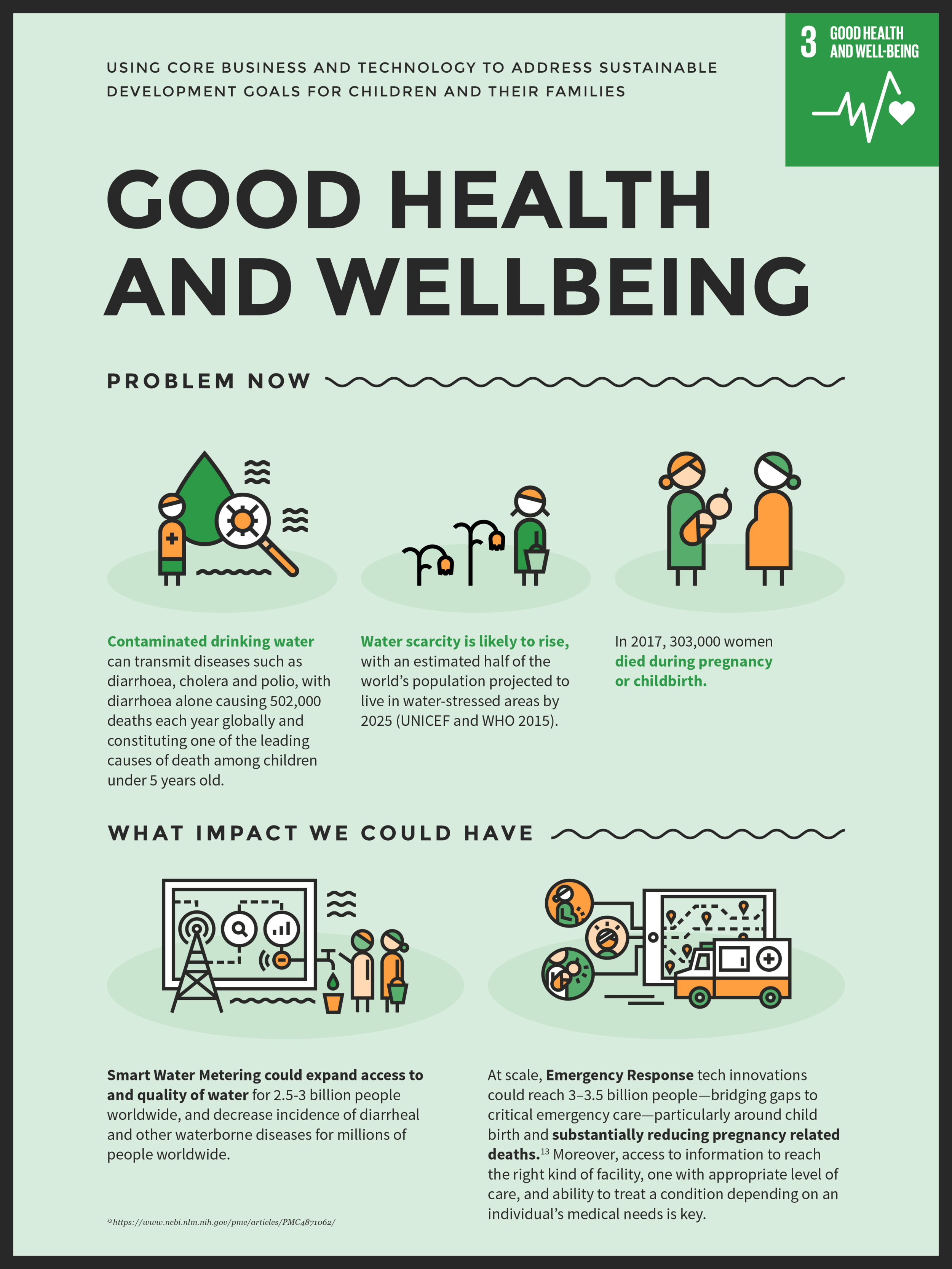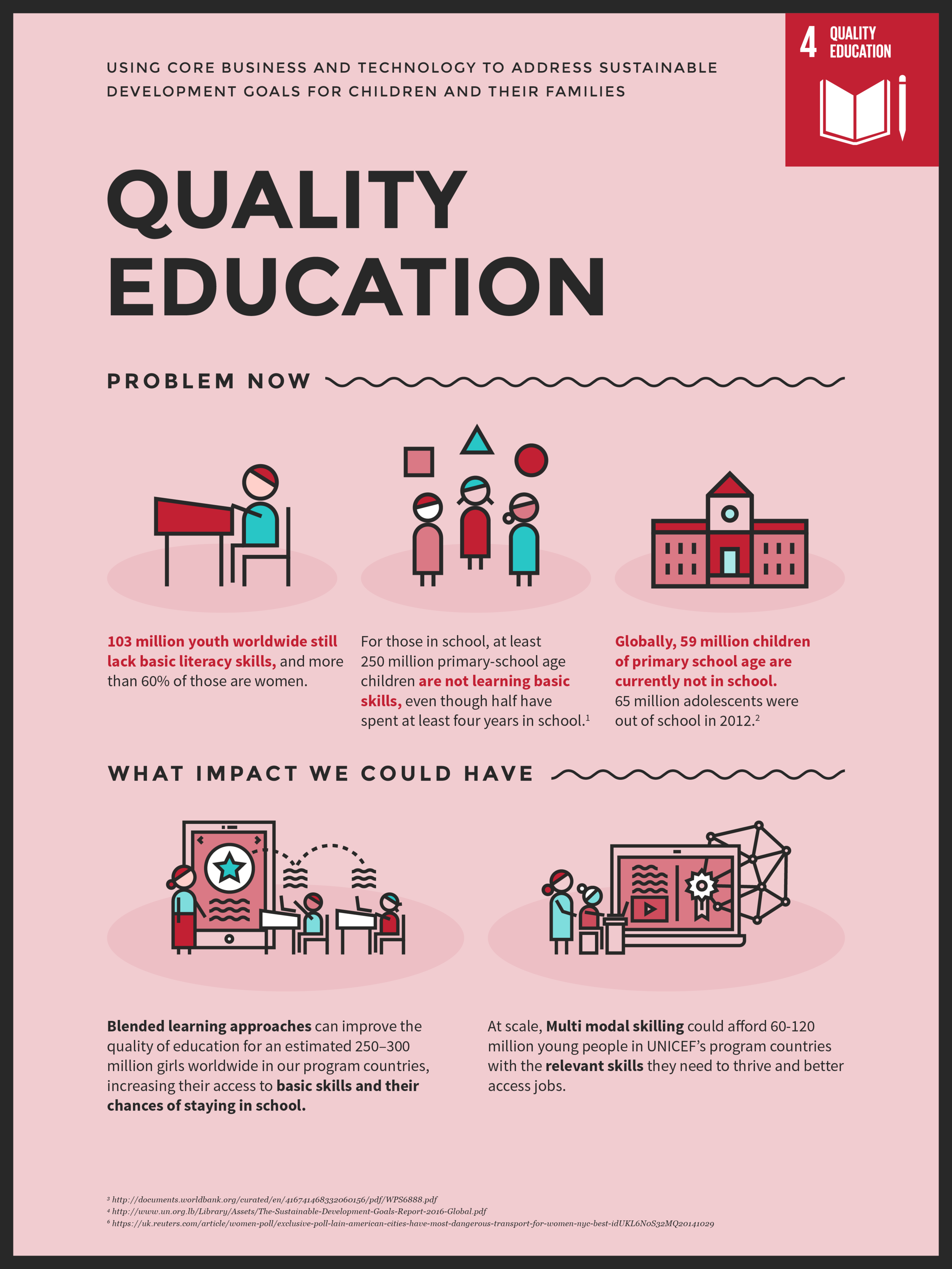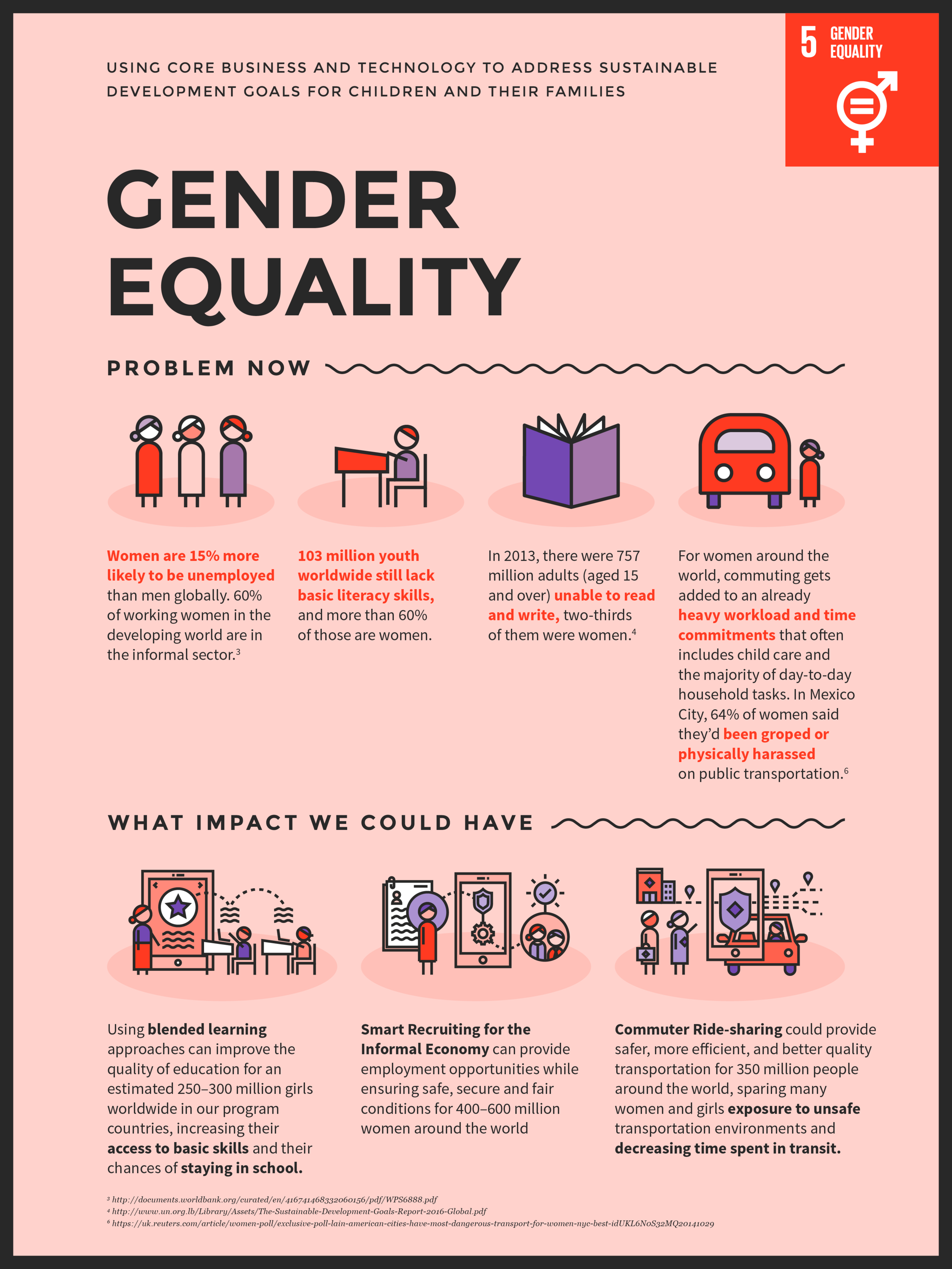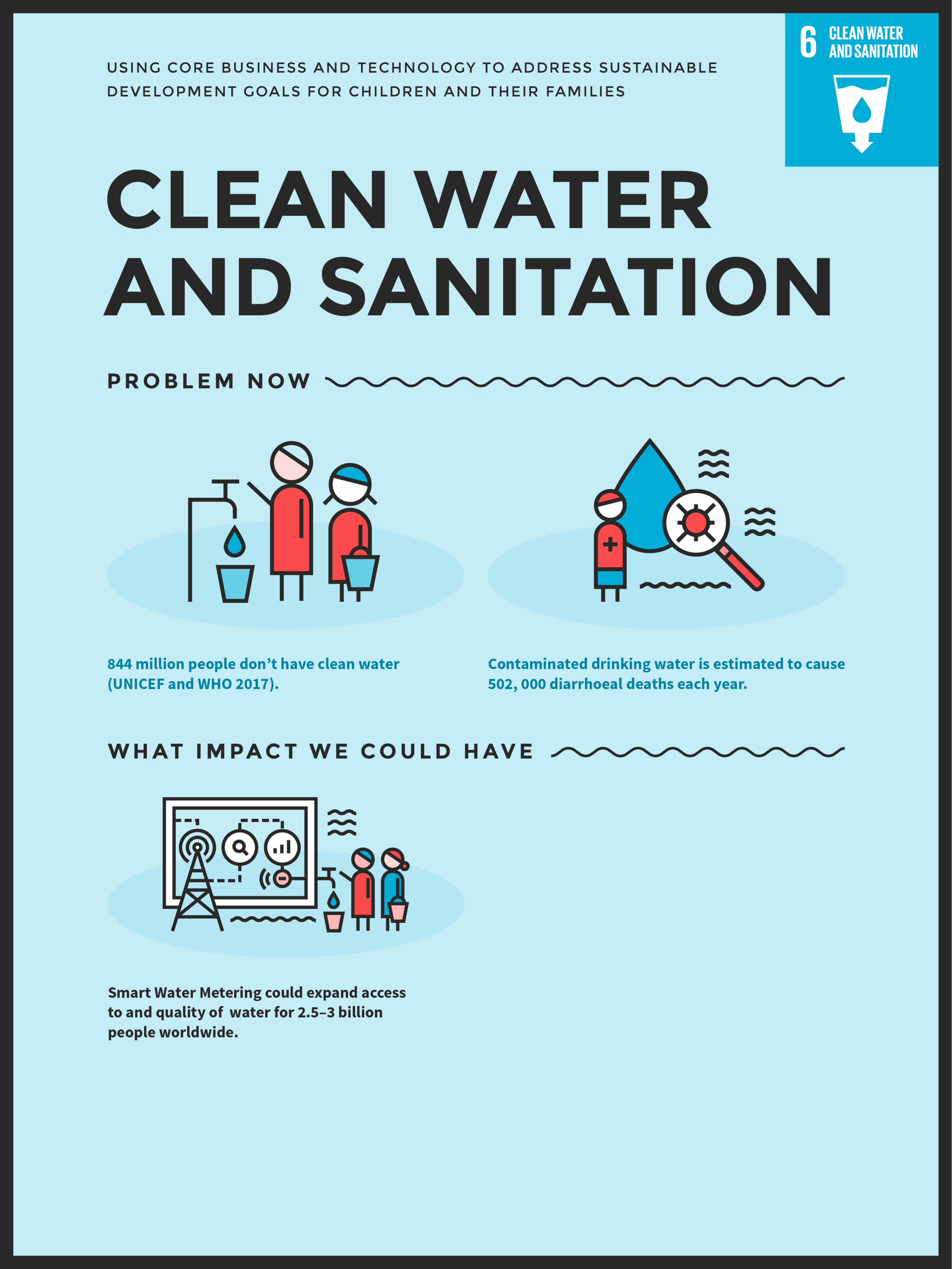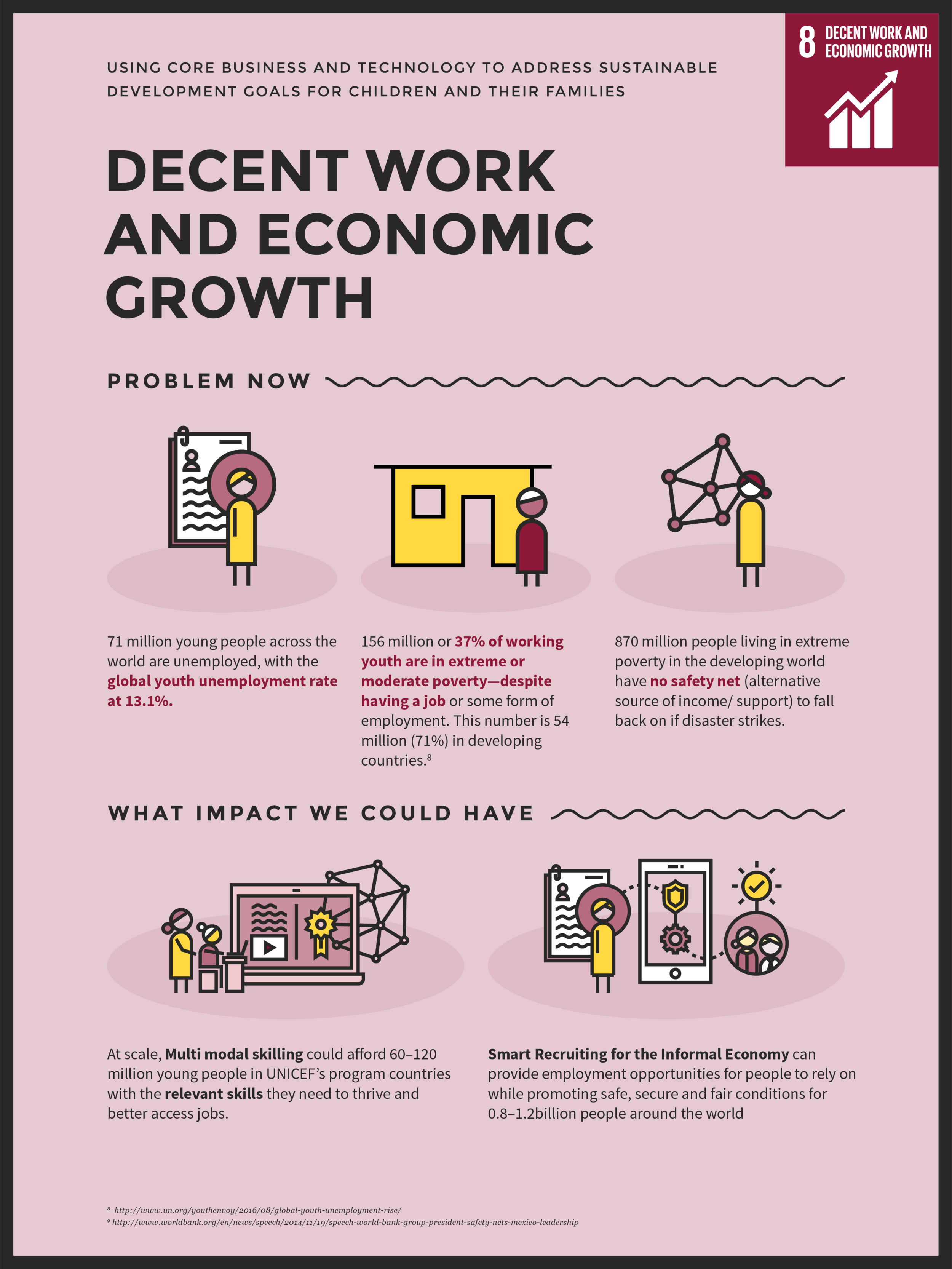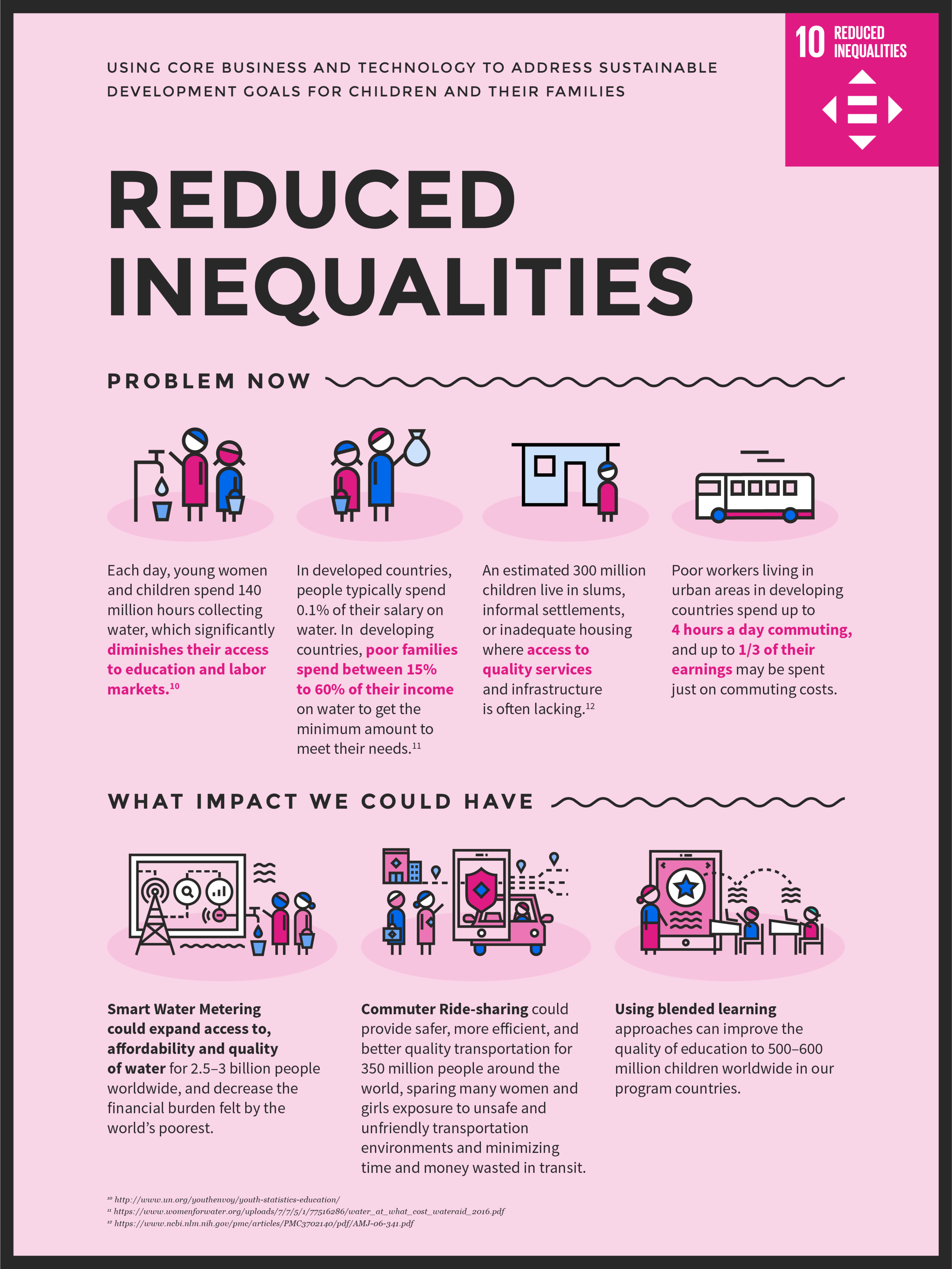Tech Bets for an Urban World
This body of work identifies digital technologies that deliver positive social impacts for children and their families in cities, and also grow markets and deliver financial returns for technology companies and investors. It details six big tech bets and provides specific recommendations for start-ups, large tech companies and the public sector.

Platforms that allow teachers to integrate online tools in classrooms for better engagement and learning outcomes.
Potential market size (by 2022):
7-15 Billion USD; 200-300 Million Users
Services that mix online education with in-person mentoring to expand access to the skills that people need to get better jobs.
Potential market size (by 2022):
20-35 Billion USD; 25-45 Million Users
Platforms which connect individuals and employers with workers for short-term jobs, finding the most suitable candidates for customers and providing security for workers.
Potential market size (by 2022):
0.5-2 Trillion USD; 0.8-1.2 Billion Users
IoT networks of sensors and meters that monitor the flow and/or quality of water, ultimately improving accessing to clean, fairly-priced water.
Potential market size (by 2022):
20-35 Billion USD; ~1.5 Billion Users
Platforms that link people in urgent need to the full range of public and private emergency response services through one interface.
Potential market size (by 2022):
70-90 Billion USD; 2-3 Billion Users
Car pooling services offered to workers by employers to ensure they get to work safely, reduce their impact on the environment, and reduce time wasted travelling to work and not spent with their families.
Potential market size (by 2022):
30-70 Billion USD; ~300 Million Users
WHY IS THIS IMPORTANT?
Technology companies have a unique ability to engage people on a global basis, touch their day-to-day lives and influence their behavior. This influence extends beyond information and entertainment and now touches fundamental human needs like access to health and education -- areas which have historically been seen as public goods.
How to do good AND do good business isn’t always clear or easy. But UNICEF and our partner Arm believe in the potential for private sector actors to address major social issues facing children and their families -- while also expanding markets and delivering financial returns for technology companies and investors . This project outlines where and how technology companies can use their strengths to do better business while improving essential services for children.
Our ultimate goals are to unlock demand and catalyze private sector investment in these technologies in order to scale and accelerate progress and improve children's lives.

HOW WE PRIORITIZED OPPORTUNITIES
Focus Areas
We began by investigating five focus areas outlined in our urbanization handbook where the most pressing challenges for children intersect with the greatest opportunities for technology-based solutions: basic services, connectivity & information, infrastructure, human mobility, violence & hazards.
Cities
We focused this work on cities because they are catalytic for innovation and serve to demonstrate the most promising markets. We think the next big tech play is just as likely to happen in Nairobi as in San Francisco. We looked at three dynamic cities to showcase the private sector opportunities - Jakarta, Mexico City and Nairobi.
JAKARTA, INDONESIA
MEXICO CITY, MEXICO
NAIROBI, KENYA
User + Market
Research
By learning directly from users about their needs, seeing first hand how technologies are directly improving their lives, sizing local and global markets, and speaking with exciting innovators we came up with six big tech bets that represent the most compelling opportunities that tech actors should pay attention to now.
ACHIEVING THE SUSTAINABLE DEVELOPMENT GOALS
Using core business and technology is paramount to achieving the SDGs for children and their families.
The power of business can be harnessed to secure a healthy planet for today’s children and future generations to scale up what works, innovate for improved solutions and results, measure progress and share lessons learned. While there is still a strong need for public and development sector leadership, the six tech bets demonstrate how the private sector can deliver sustainable impact for many of the world’s 2.2 billion children through their core business. Here are some of the concrete ways that can happen and what that means in terms of progress towards the SDGs.
